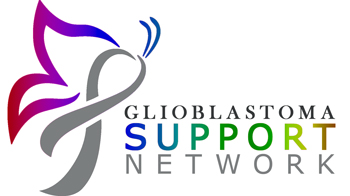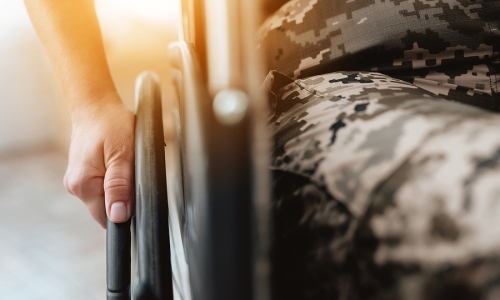Information for Veterans with Glioblastoma Multiforme Brain Cancer
If you or a loved one have been seeking care for glioblastoma multiforme brain cancer at a Veterans Affairs hospital, you aren’t alone. Although few actual brain cancer studies have been done specifically on military personnel and veterans, statistics show that veterans are diagnosed with glioblastoma multiforme more often than members of the general population. Calculations based on data from the Department of Veterans Affairs and National Institutes of Health show veterans being diagnosed at a 26% higher rate.
In fact, according to an investigation and report by Military.com and Public Health Watch, glioblastoma multiforme is the third most common cause of cancer-related death in the active-duty population—just behind colon cancer and leukemia.
The VA provides a number of benefits to glioblastoma multiforme patients, but patients and their families might not be aware of them. The healthcare system can also be difficult to navigate at such an overwhelming and stressful time, no matter where you seek care, and using a VA hospital can present unique challenges if you’re unfamiliar with the way things work. We’ve compiled a list of a few things you should know about working with your local VA hospital. If you have any additional questions, reach out to us or contact your local VA hospital.
It’s often a good idea to seek a second opinion, and the VA will cover the cost.
Oncologists do not always know about every type of cancer, or they may know just a little bit about a wide range of cancers instead of being specialists in one area. Glioblastoma is a complex disease that presents many specific challenges best handled by an expert. If your VA oncologist is not a glioblastoma specialist, you’ll want to seek one out who is, and the VA should cover the costs.
Not all care has to be conducted inside the VA hospital.
You can get referrals to other institutions, and the VA will cover the expenses. If your local VA doesn’t provide a specific treatment such as radiation, for example, you’ll be sent to another hospital. You may also qualify for clinical trials at other hospitals. You’ll need to learn the process of getting the VA to pay an outside hospital, and you may need to apply for Medicaid to help pay for expenses not authorized by the VA.
The VA will provide services even if the veteran is not 100% disabled.
Many glioblastoma multiforme patients are considered 100% disabled from the date of diagnosis, but they may not be 100% disabled “service-connected.” They will still be able to receive services. In fact, the only service that a non-100%-disabled vet cannot receive is dental benefits.
You can access medical information and place orders online.
During this stressful time, gaining quick access to test results and having an easy way to order medications can make things a bit easier on you. Ask how you can enroll in a premium account to gain access to these services. The VA has access to all medical records and test results, and you’ll have the ability to order medications online.
The VA will cover a number of expenses and provide equipment.
This includes everything from covering the costs of in-home care to purchasing a medical bracelet or even Ensure shakes when eating is difficult. Families of veterans have let us know they’ve been provided scooters, hospital beds, bedside commodes, magnifying glasses and canes for patients with deteriorating vision, and much more. The VA will also cover the costs of installing safety items in your home, such as handrails in the bathroom and on the stairs. If you’re unsure if an item is covered, be sure to ask. Chances are, it can be covered.
The VA will help you get a disabled placard for your vehicle.
The application process and requirements can vary from state to state, but the VA will help you navigate all of the red tape involved to make the process a bit easier on you.
The VA will provide all therapies.
This includes occupational therapy, physical therapy, and speech therapies.
The VA will provide a free burial plot in a veterans’ cemetery.
According to the VA web site, burial benefits include a gravesite in any national cemetery, opening and closing of the grave, perpetual care, a headstone, marker, or medallion, a burial flag, and a Presidential Memorial Certificate.
If you find yourself here because you or a veteran family member has been diagnosed with glioblastoma multiforme brain cancer, we understand that the battle can be overwhelming at times. The Glioblastoma Support Network is here to provide you with assistance, support, and education. If you’re looking for a list of brain tumor support organizations, information about support for caregivers, or end-of-life resources, please visit our resources and support pages.
You are not alone. Help is available.
Article submitted by Barbara King


